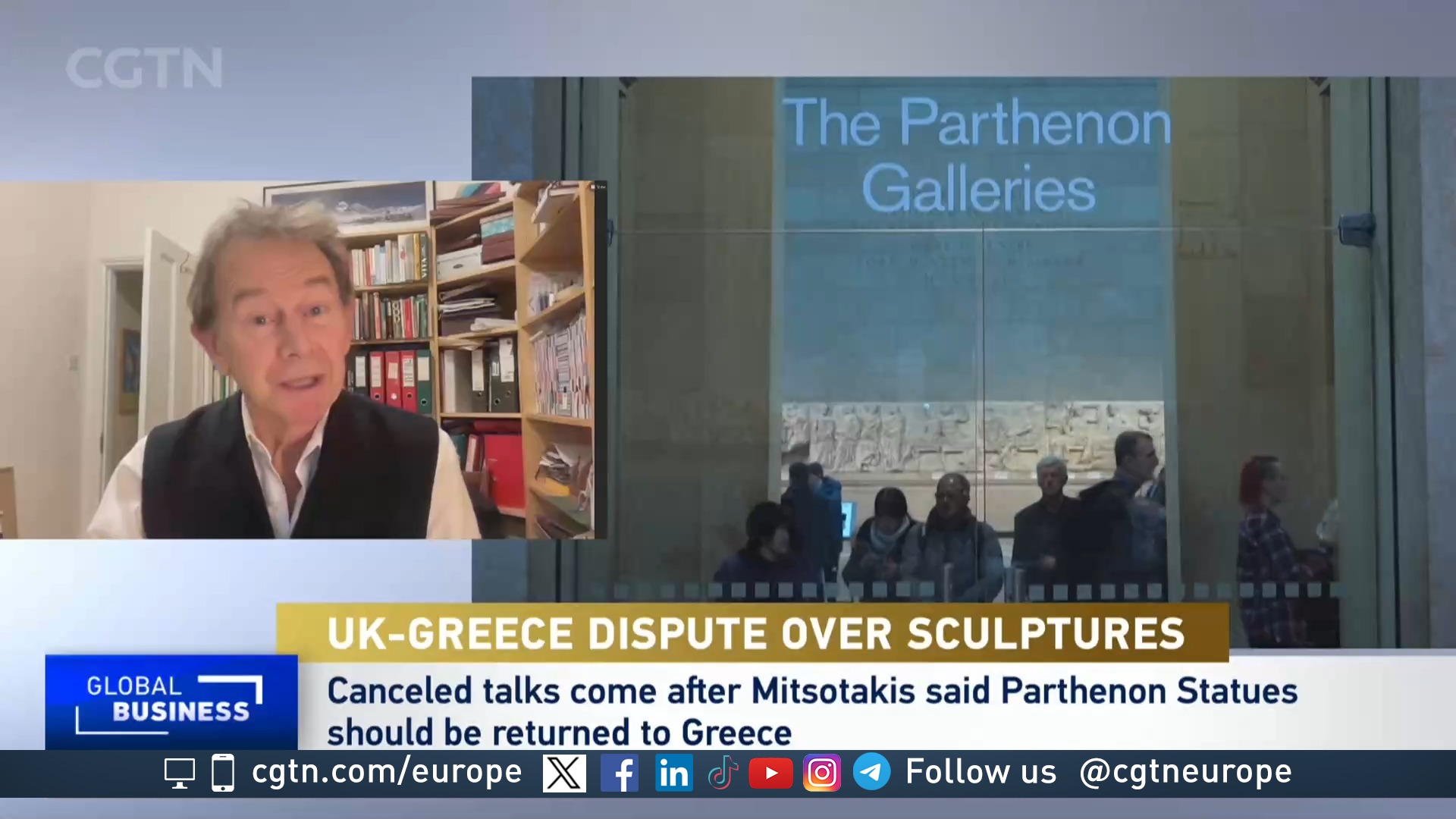04:27

The UK Government have been urged to not run away from a tug of war with Athens over the Parthenon Sculptures that are on display in the British Museum in London and give them back to Greece without a struggle.
Michael Wood, Professor in Public History at the University of Manchester, says Greece are well within their rights to ask for the exhibits to be returned after a row erupted between Rishi Sunak and his Greek counterpart Kyriakos Mitsotakis, who saw a meeting with the UK Prime Minister canceled this week. Downing Street said Deputy Prime Minister Oliver Dowden would be available to discuss the situation. Mitsotakis declined and expressed his 'annoyance' at Sunak's actions.
The Parthenon Sculptures, often referred to as the Elgin Marbles, are 75 meters of the Parthenon frieze, 15 carved plaques and 17 sculptures which decorated the Parthenon temple from 447BC until the fourth century. Greece has repeatedly asked the British Museum to permanently return the 2,500-year-old sculptures, that British diplomat Lord Elgin removed from the Parthenon temple in the early 19th century when he was ambassador to the Ottoman Empire.
Asked who was correct, Wood replied: "It's Greece, of course. The marbles were taken by Lord Elgin 200 years ago when Greece was an occupied country, part of the Ottoman Empire. And even at the time in parliament, there were people who said that we can only have them on the trust we should give them back when Greece becomes an independent country again.
READ MORE
Emergency budget agreed by German government
Swimming returns to Germany's Ruhr river
Canary Islands on the frontline of migration
"The majority of the population of Britain, according to all the polls, two thirds of people support their return. So I think there's an overwhelming case. But the marbles are divided between Athens and London. So we can't see them as a whole because part of them are in London. So they should all go back to Athens," he told CGTN's The World Today.
"And I think if they do all go back to Athens, it could be a great plus for the British Museum. It claims to be the Museum of the World, and it would be setting a great precedent."

Part of the Parthenon Sculptures on display in the British Museum in London. /Toby Melville/Reuters
Part of the Parthenon Sculptures on display in the British Museum in London. /Toby Melville/Reuters
Such a move could lead to calls for all relevant exhibits to be returned to their original owners from museums across the globe. Wood rejected such a concept. "Nobody's saying that. Most museums across the world are not stocked with loot from the colonial era and nobody's calling for the full restitution of everything," he said.
"The British Museum's got 100,000 pieces from Greece. The Greeks aren't asking for all those but they're asking for the Parthenon Marbles because of their importance as symbols of Greek civilization. I think it would be a wonderful gesture, a very magnanimous gesture. It shouldn't be done through gritted teeth, as if they (the UK government) are being dragged screaming to do it."
The return of the sculptures could set a precedent, however, and Wood admitted 'repatriation is in the air'.
He added: "There's been quite a few restitutions, for instance, of the Benin bronzes to Nigeria that were all stolen by the British in a military expedition of 1897. We could talk about China, what about the the loot that was taken when the British sacked the Summer Palace. But in terms of the Parthenon Marbles, the Greeks are only asking for these back and and we should give them."
There is also a suggestion the UK could loan the sculptures to Athens and Wood said: "It would be a British compromise. I don't think the Greeks would be very happy because you'd want it the ownership to change. You'd want them to be owned again by the people of Greece. There's a sense of pain as Greeks look at these wonderful things in a foreign museum."
Wood says he disagrees with Sunak's position as the UK Prime Minister fights against poor poll ratings ahead of a General Election next year and finds his decision to not meet with Mitsotakis to be the wrong one.
He added: "No, I think it's absolutely pathetic. I agree with the Labor judgment on this. Britain has a very long and affectionate relationship with Greece. And the idea that our prime minister refused to talk to Mitsotakis... diminishes our prime minister."

Subscribe to Storyboard: A weekly newsletter bringing you the best of CGTN every Friday